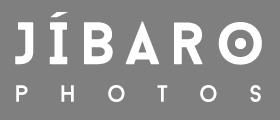Cuba’s Green Gold
“Despite its ups and downs, cigar production in Cuba defines the global benchmark in quality and aroma.”
Cigar aficionados all over the world are passionate about Cuban cigars. But what makes a Cuban cigar special? There is only one ingredient — tobacco, so the location becomes extremely important to the flavor and aroma of a cigar. The tobacco is unique in the western region of the island, where over thirty thousand hectares of fertile land are marked for cultivating the world-famous “green gold.”
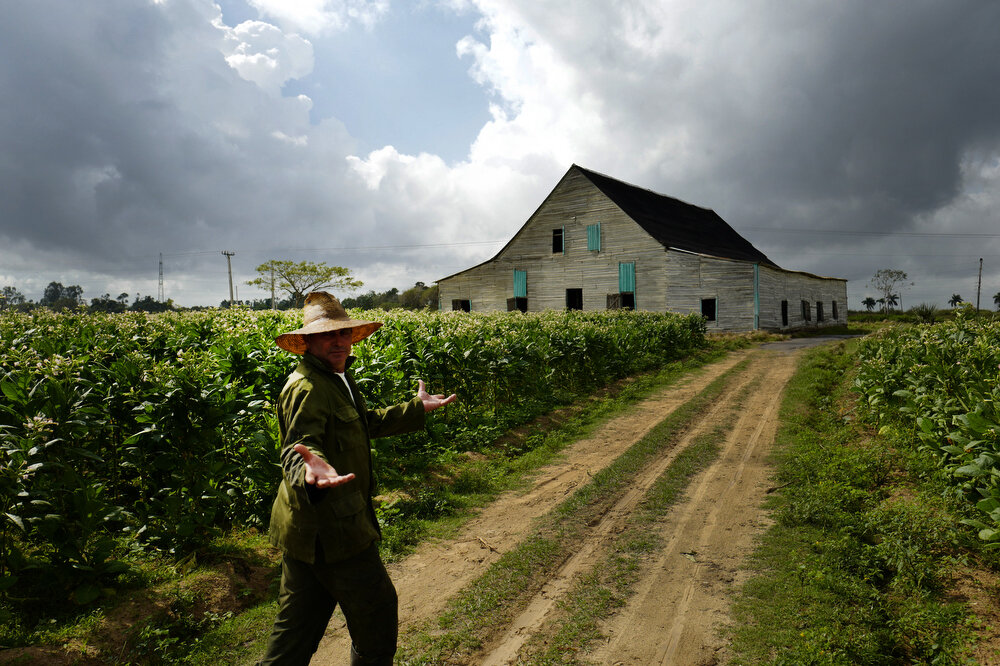
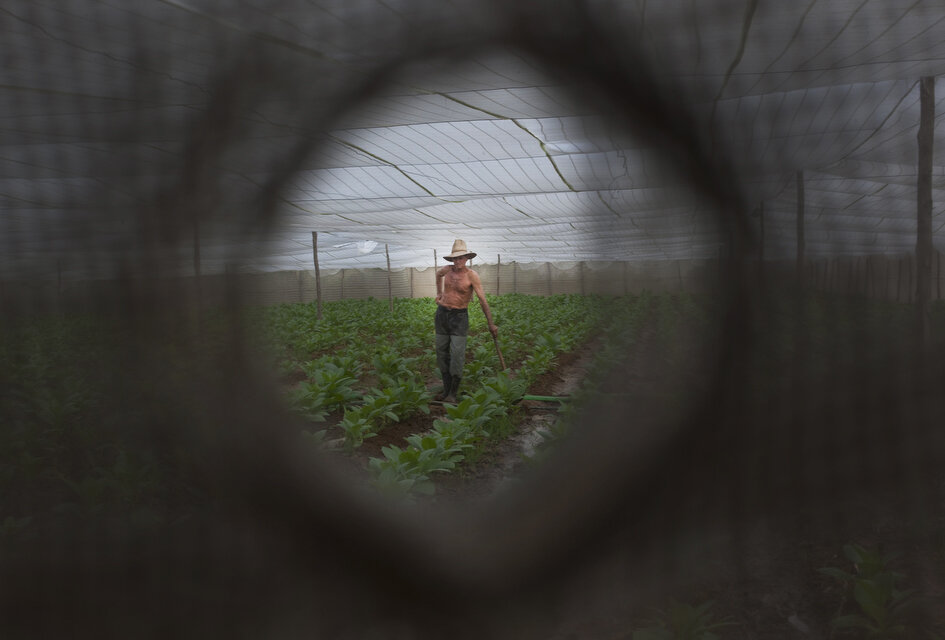
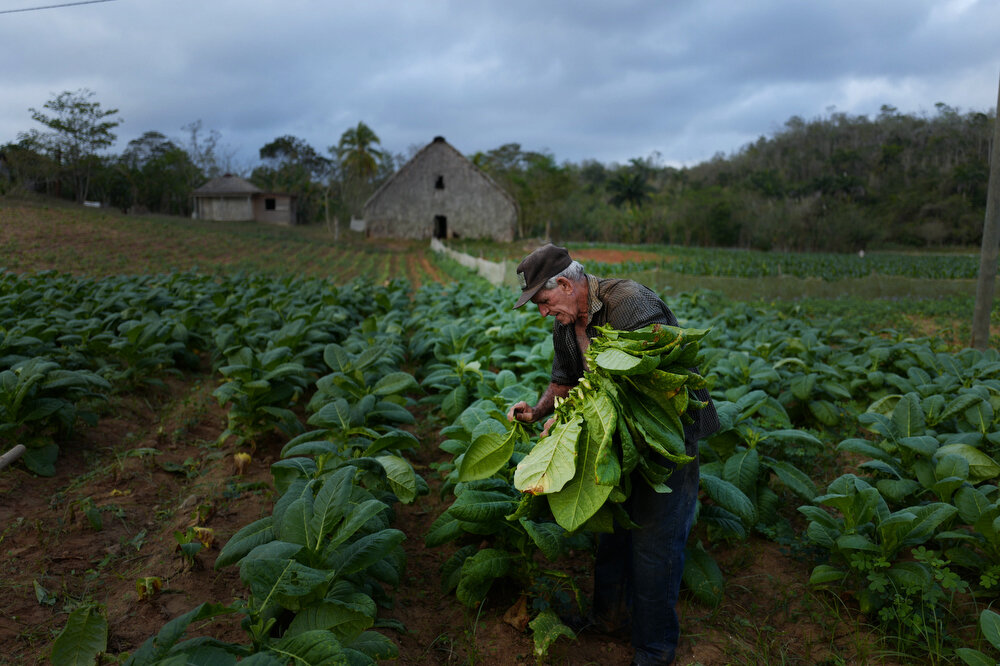
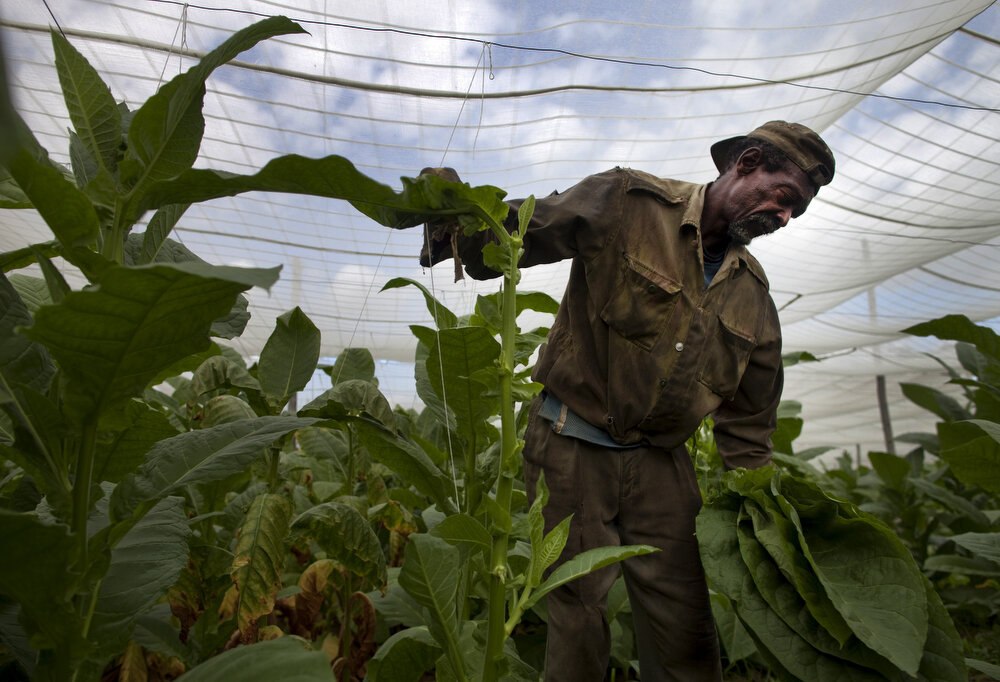
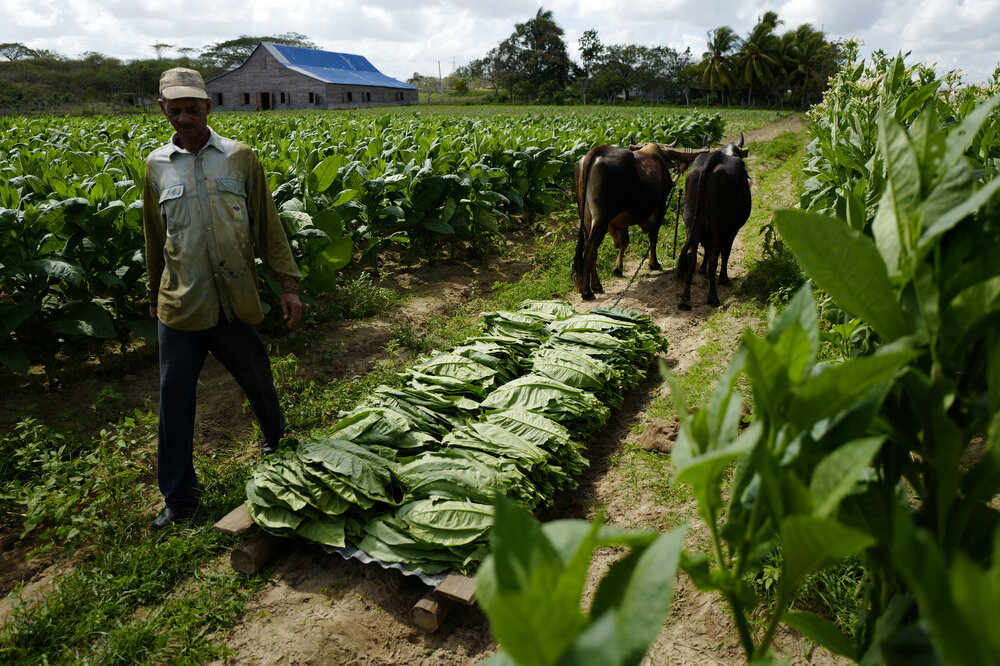
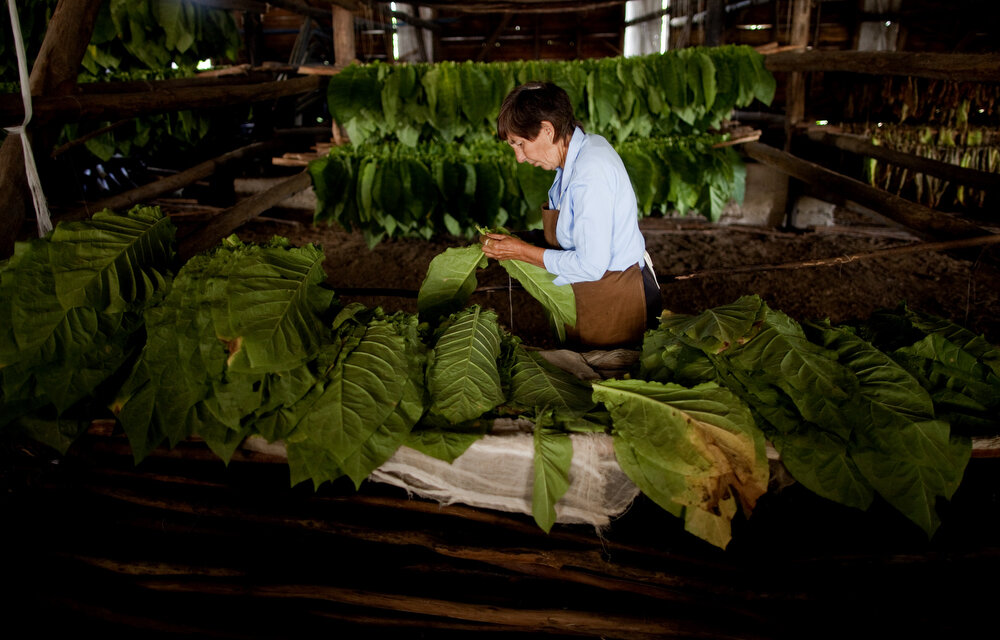
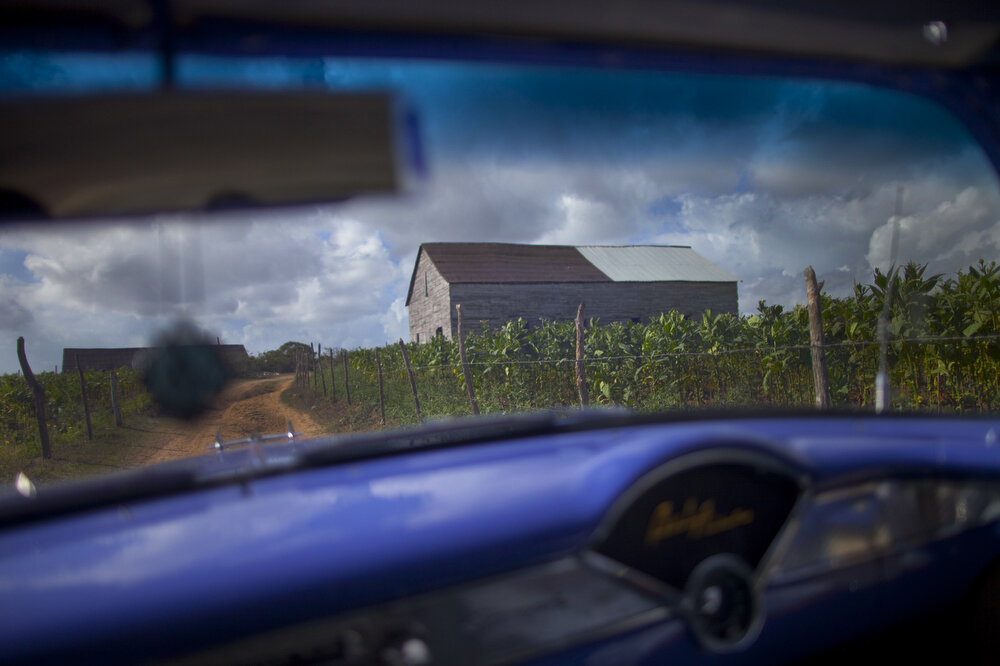
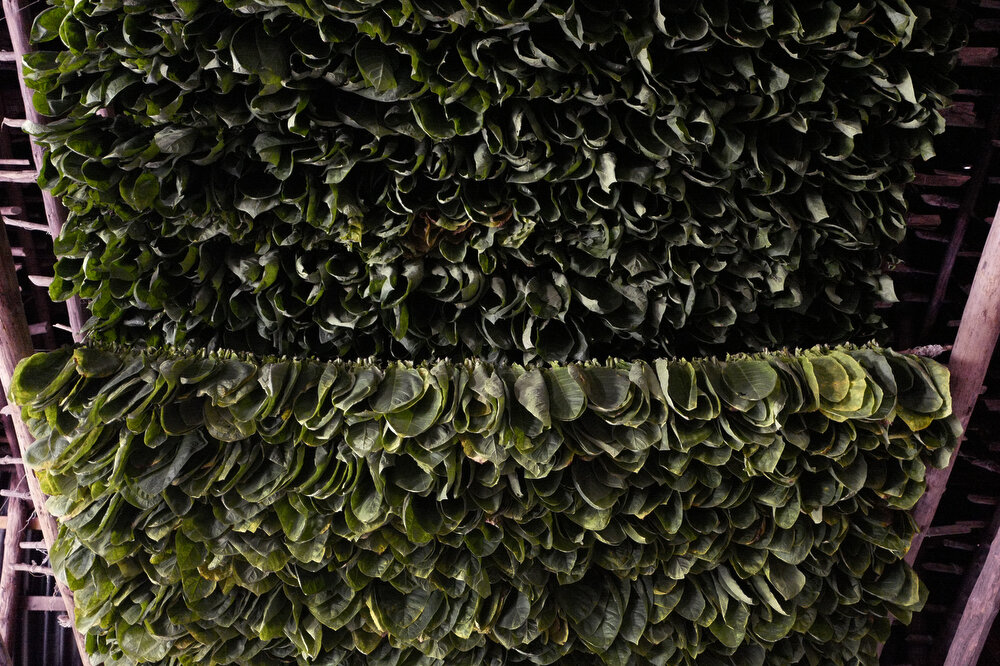
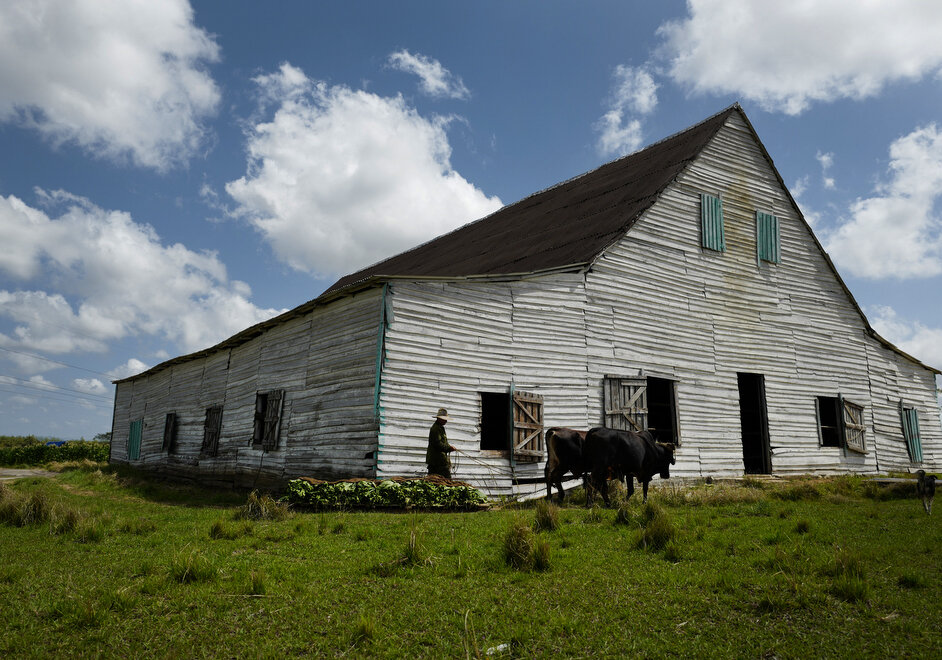
All images in this gallery © Eliana Aponte
Tobacco, a magical plant has thrived for over 500 years on the island and became a consumer product for the masses with the development of the Farias short-filler pressing system in 1889 as mechanical production became possible. Over the years, following the triumph of the Cuban Revolution in 1959, several quality and exclusive brands evolved. Cigar production, much like anything else in Cuba, has seen its ups and downs, yet holds a global benchmark for quality and aroma.
Tobacco is the national pride of Cuba as evident in its process of cultivation, drying, and production. Its farming and production is directed by the state company, Tabacuba, while its commercial operations are carried out by Imperial Brands, a British company. Since 2008, Cuban company Habana S.A. through a joint arrangement with Imperial Brands has been distributing and selling Cuban cigars to over 150 countries except the United States — Spain, China, Germany, and France are the top buyers amongst others.
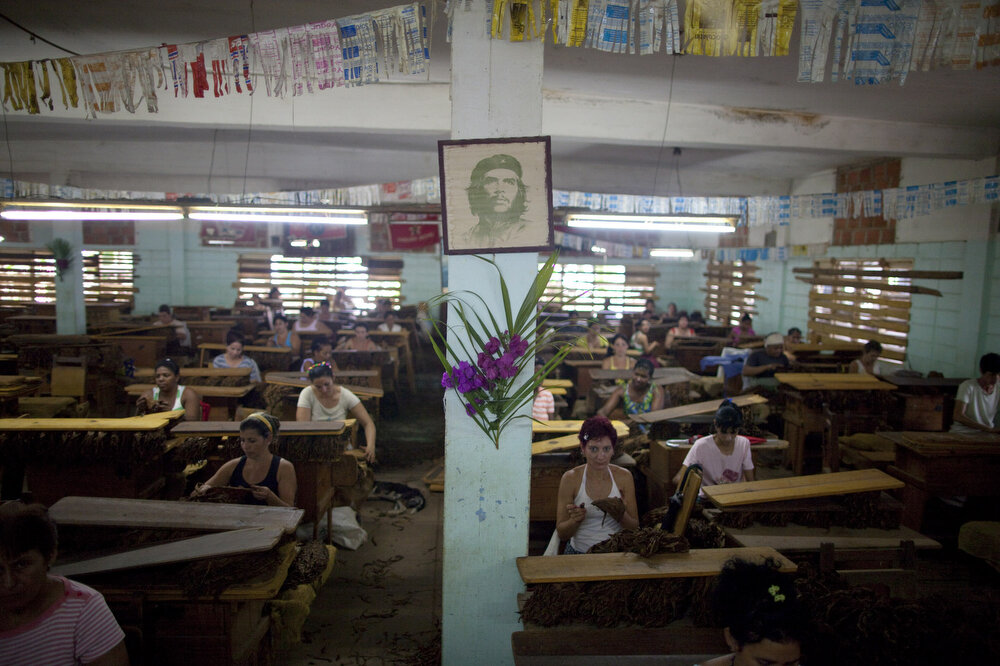
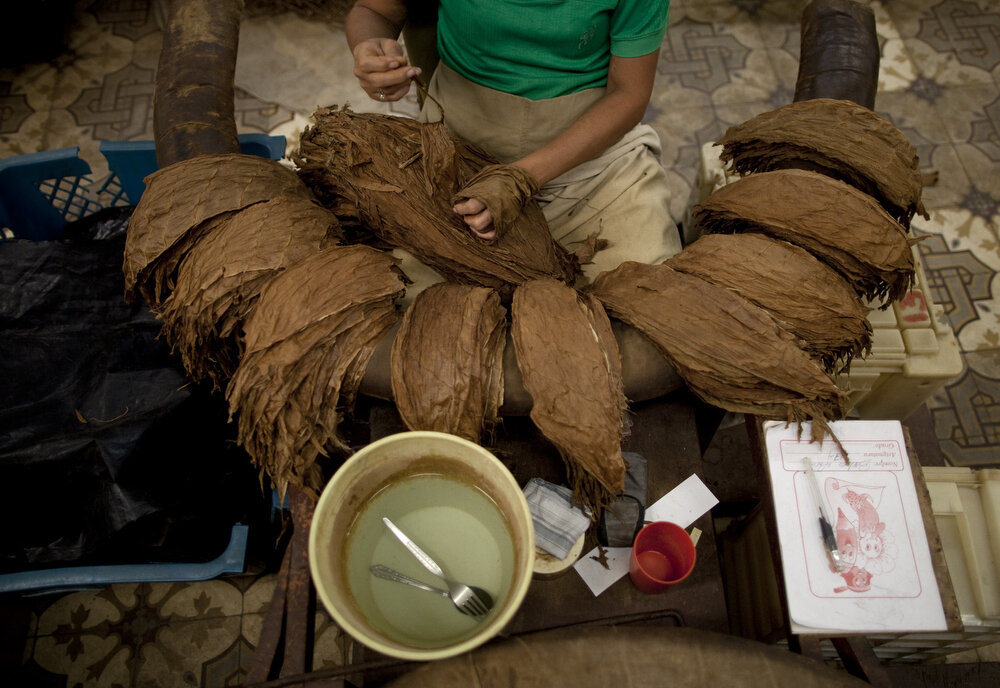
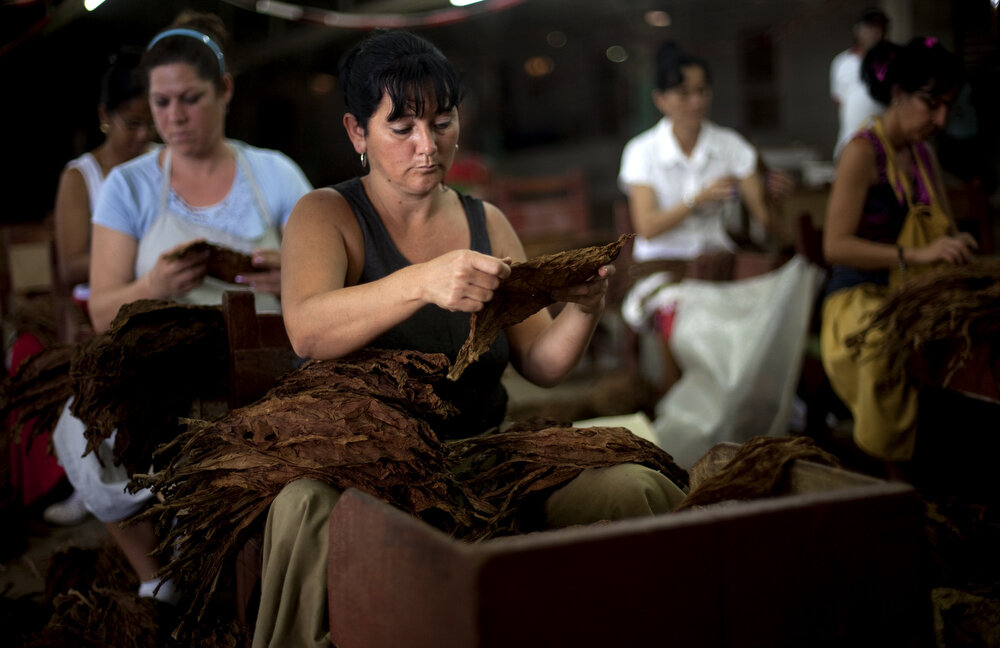
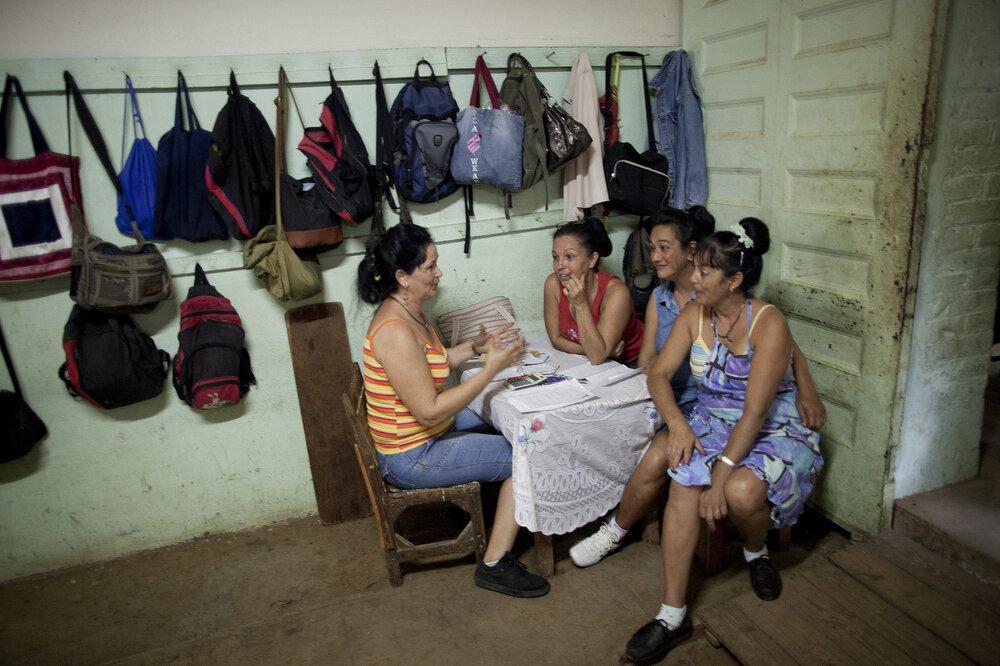
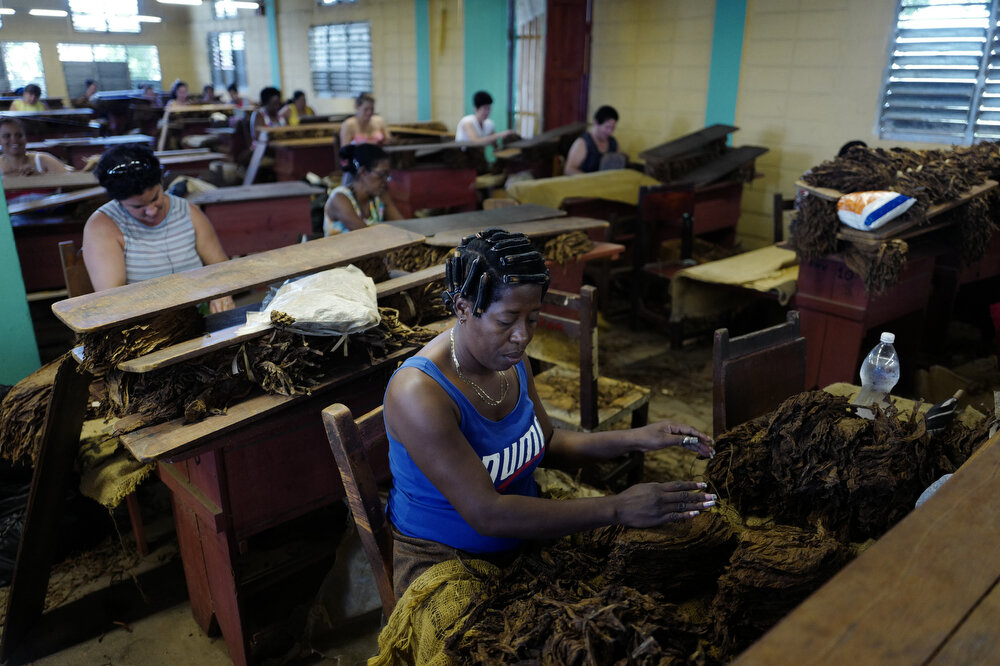
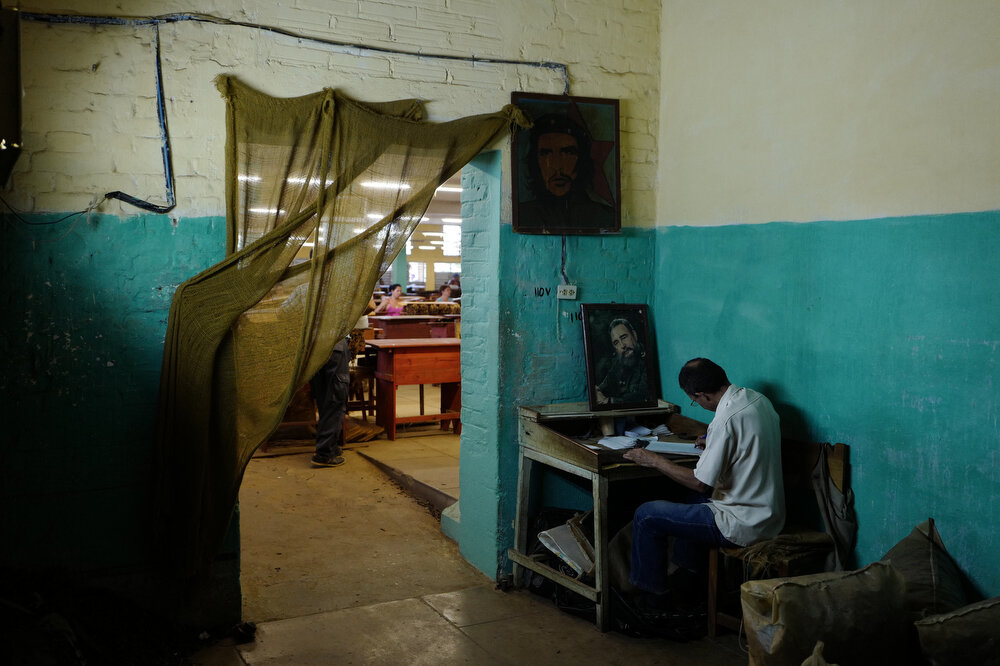
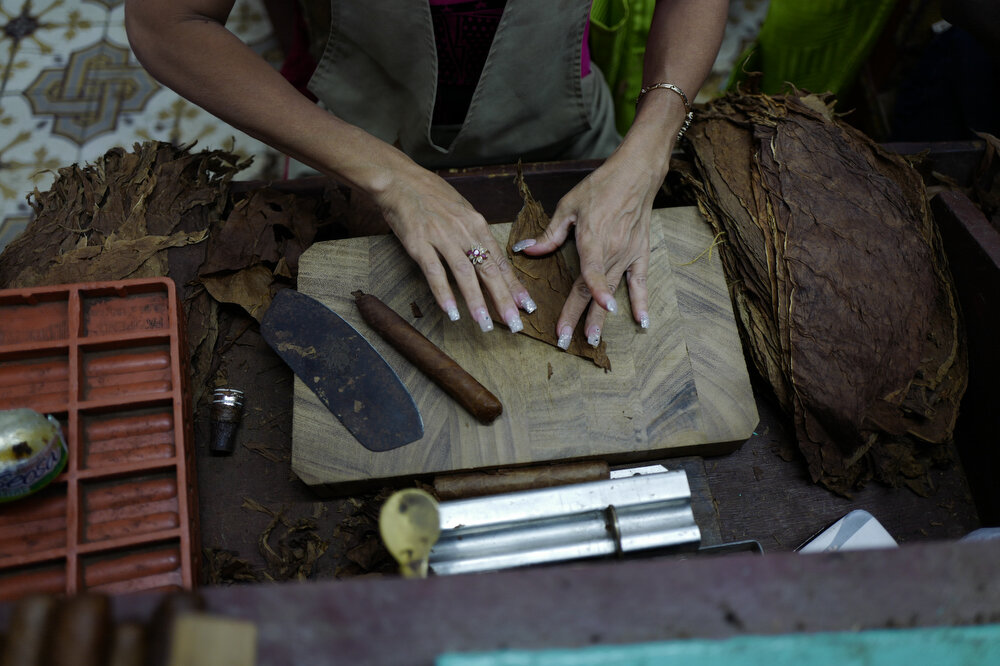
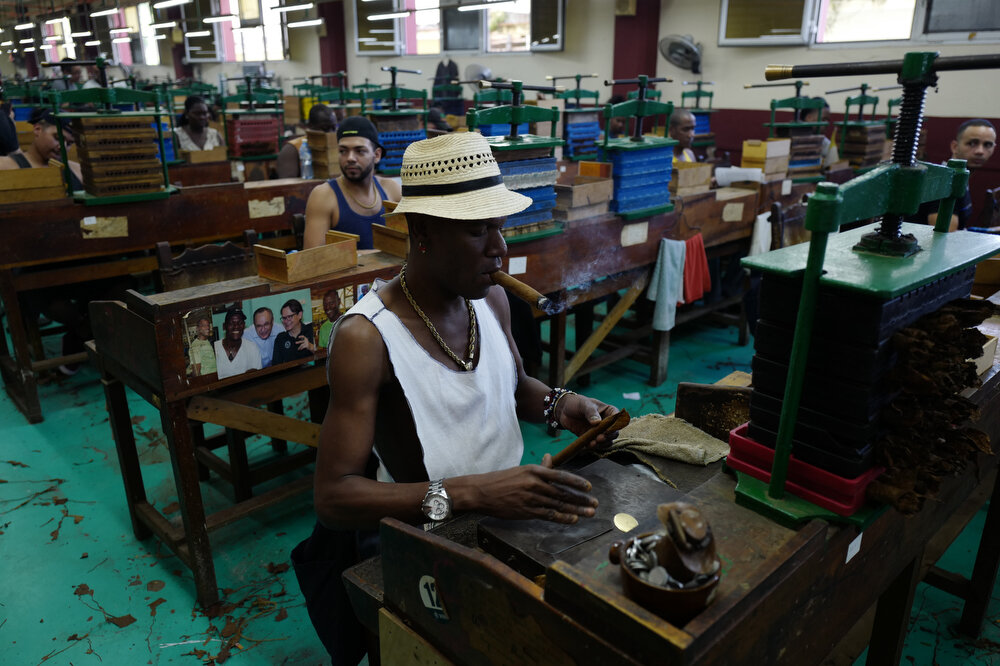
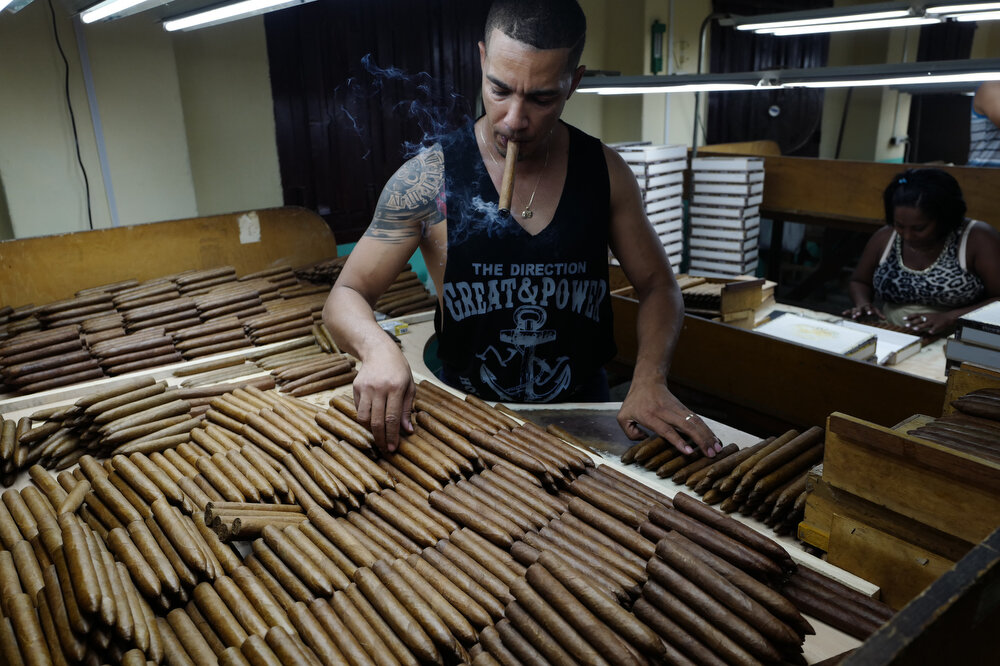
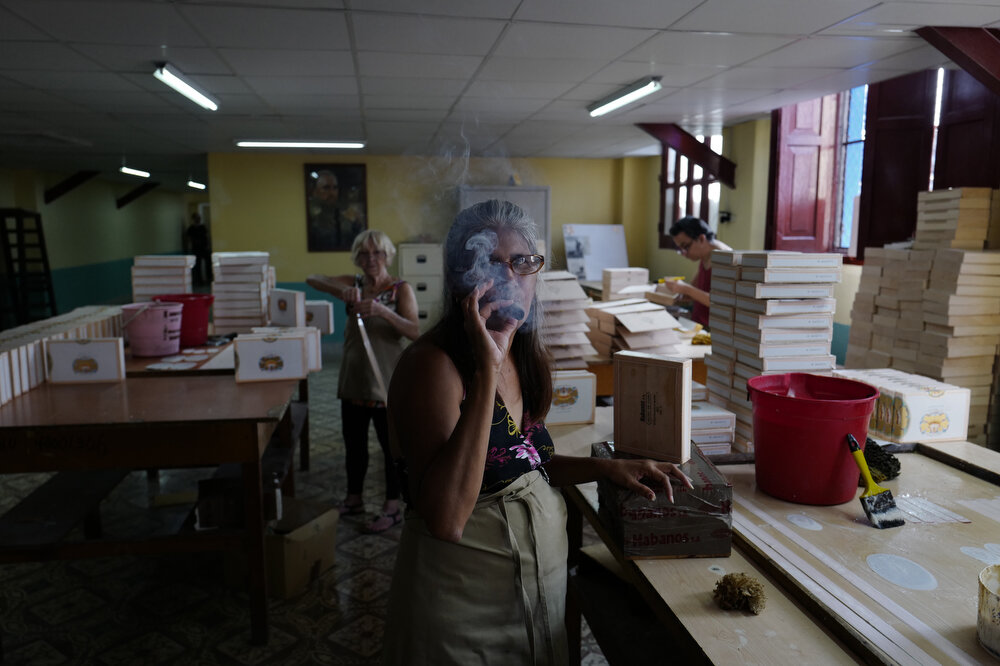
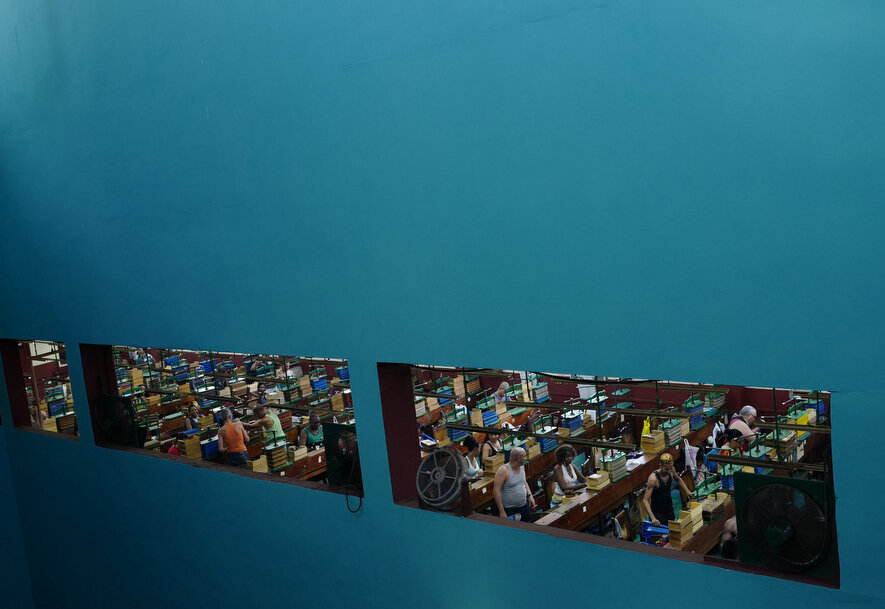
All images in this gallery © Eliana Aponte
The commercial success of cigar exports has led to the highly-recognized and long-awaited annual Habana festival. Every February, at the end of the tobacco season, cigar-lovers, experts, and tourists converge in Havana to visit the farms and factories where thousands of Cubans hand-produce cigars from dry leaves to finished product in boxes. Machine-produced cigars are meant for general consumption by the population while the premium, hand-made ones are exported globally. The unique nature of the soil, reflected in the leaves’ aroma is what makes these cigars premium. The Habana festival offers a unique opportunity for tourists and accredited journalists to walk through the factory doors and see first-hand, how each cigar is rolled.
Tobacco is an important industry for Cuba and its economy. In 2019, sales were estimated to reach $531 million. Today, there are 27 exclusive brands made entirely by Cuban hands, known as Premium. The top-selling brands are Cohiba, Montecristo, Romeo y Julieta, and Partagás.
